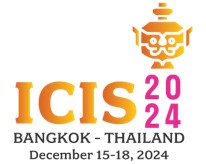Paper Number
2220
Paper Type
Short
Abstract
While agile management approaches have become ubiquitous in responding to increasing uncertainty, agile teams often stock in adaptability due to entrenched ways of thinking and acting. This paper therefore asked how agile teams can be supported in shaping their mindsets and behaviors to embrace change. By following design science research and in close collaboration with agile practitioners, we designed a digital, visual inquiry tool entitled Agile Unlearning Canvas (AUC). Several expert interviews and a field-test with a major international insurance corporation point to the AUC’s efficacy in supporting joint identification, reflection, and unlearning of entrenched knowledge structures within agile SCRUM teams. Our research-in-progress work advances the empirical understanding of the problem and solution space, lays a practical foundation for enhancing agile project management outcomes, and sets the stage for further artifacts that support agile teams in navigating dynamic contexts.
Recommended Citation
Di Maria, Marco; Baindurashvili, Natia; Schoormann, Thorsten; and Knackstedt, Ralf, "A Visual Inquiry Tool to Support Unlearning in Agile Teams" (2024). ICIS 2024 Proceedings. 6.
https://aisel.aisnet.org/icis2024/isdesign/isdesign/6
A Visual Inquiry Tool to Support Unlearning in Agile Teams
While agile management approaches have become ubiquitous in responding to increasing uncertainty, agile teams often stock in adaptability due to entrenched ways of thinking and acting. This paper therefore asked how agile teams can be supported in shaping their mindsets and behaviors to embrace change. By following design science research and in close collaboration with agile practitioners, we designed a digital, visual inquiry tool entitled Agile Unlearning Canvas (AUC). Several expert interviews and a field-test with a major international insurance corporation point to the AUC’s efficacy in supporting joint identification, reflection, and unlearning of entrenched knowledge structures within agile SCRUM teams. Our research-in-progress work advances the empirical understanding of the problem and solution space, lays a practical foundation for enhancing agile project management outcomes, and sets the stage for further artifacts that support agile teams in navigating dynamic contexts.
When commenting on articles, please be friendly, welcoming, respectful and abide by the AIS eLibrary Discussion Thread Code of Conduct posted here.



Comments
11-PM